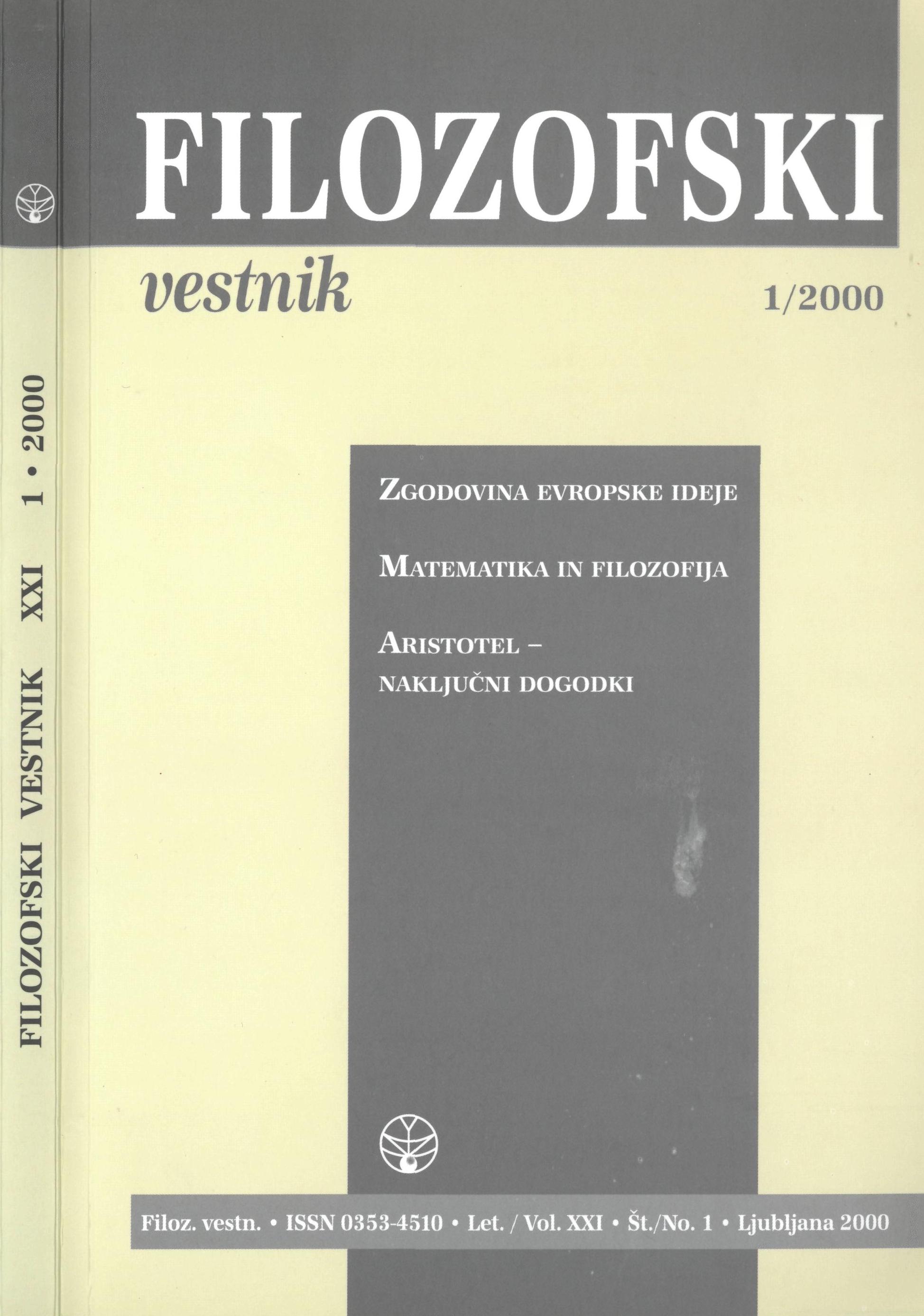Aristotelovi matematični predmeti kot “vmesne stvari”
Ključne besede:
Platon, Aristotel, filozofija matematike, vmesne stvari, številoPovzetek
V svoji Metafiziki Aristotel pogosto in eksplicitno pravi, da je Platon verjel v tretjo vrsto entitet, ki niso istovetne ne z idejami in ne s fizičnimi predmeti. To so tako imenovane “vmesne stvari” (ta metaxu). Dasitudi lahko pri Platonu zares najdemo podobna izhodišča, pa pri njem ne bomo našli neposredne potrditve za takšen pomemben in nepričakovan nauk. Ker so “vmesne stvari” izenačene z matematičnimi predmeti, nam bo sam koncept prvih pomagal razumeti značilnosti drugih. Toda čemu bi morale biti “vmesne stvari” natanko predmeti matematike? Mar ne bi smeli postulirati istega tipa vmesne entitete prav tako v vsaki drugi znanosti? V članku se dotaknem še različnih pristopov v razlagi Aristotelove obravnave Platona – je obstoj “vmesnih” stvari nekaj, kar trdi Platon, morebiti nekaj, kar je Aristotelov izum ali pa je le modifikacija platonskih idej, ki so bile pri Aristotelu uporabljene zato, da bi izboljšal svoje lastne predpostavke filozofije matematike?Prenosi
Podatki o prenosih še niso na voljo.
Prenosi
Objavljeno
2016-01-17
Kako citirati
Vezjak, B. (2016). Aristotelovi matematični predmeti kot “vmesne stvari”. Filozofski Vestnik, 21(1). Pridobljeno od https://ojs.zrc-sazu.si/filozofski-vestnik/article/view/3728
Številka
Rubrike
Matematika in filozofija
Licenca
Avtorji jamčijo, da je delo njihova avtorska stvaritev, da v njem niso kršene avtorske pravice tretjih oseb ali kake druge pravice. V primeru zahtevkov tretjih oseb se avtorji zavezujejo, da bodo varovali interese založnika ter da bodo povrnili morebitno škodo.
Podrobneje v rubriki: Prispevki





